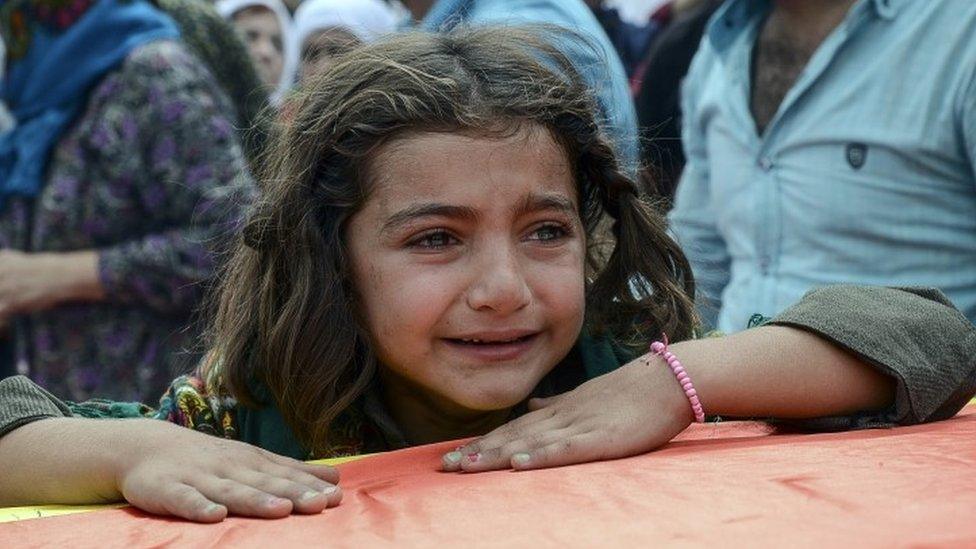Ankara explosions leave almost 100 dead - officials
- Published
Footage showed the moment one of the blasts occurred
Two explosions at a peace rally in the Turkish capital Ankara have killed at least 95 people and injured 245, according to officials.
TV footage showed scenes of panic and people lying on the ground covered in blood, amid protest banners.
The blasts took place near the city's central train station as people gathered for a march organised by leftist groups.
The attack is the deadliest ever of its kind on Turkish soil.
Prime Minister Ahmet Davutoglu has announced three days of national mourning, and said there was evidence that two suicide bombers had carried out the attacks.
Footage shows the aftermath of an attack on the Turkish capital, Ankara - Sahdi Al-Kashif reports
President Recep Tayyip Erdogan said the attack, which comes three weeks before a re-run of June's inconclusive parliamentary elections, was an act of terrorism and was "loathsome". He has cancelled a planned visit to Turkmenistan.
The rally was demanding an end to the violence between the Kurdish separatist PKK militants and the Turkish government, and had been due to start at 12:00 local time.
The pro-Kurdish HDP party was among those attending, and it said in a statement, external that it believes its members were the main target of the bombings.
HDP leader Selahettin Demirtas has blamed the state for the attack and has cancelled all election rallies. Mr Demirtas angrily condemned the government as "murderers" and said it had blood on its hands.
The party has previously blamed the government for colluding in attacks on Kurdish activists, which the government denies.
The two explosions happened shortly after 10:00 as crowds gathered ahead of the rally. Amateur video footage showed a group of young people holding hands and singing, before the first blast.


Banners for the planned peace rally were used to cover victims' bodies
At the scene: Selin Girit, BBC News, Ankara
"I lost two of my friends," eyewitness Murat Tasdemir told me. "They are now dead. Many of my friends are wounded. We had to carry the dead and the injured to the ambulances ourselves."
They had come to the scene to gather for what was supposed to be a peace rally. Two attacks within seconds tore them apart. The site is now cordoned off as crime scene investigation units scour the area. The banners that read "Peace" are scattered across the ground.
People across Turkey are mourning for the victims of this deadliest attack on Turkish soil. Many are wondering: What next? If such an attack could take place in the middle of the capital city, how will security be maintained for elections in three weeks' time, they ask.

Bulent Tekdemir, who was at the rally, told the BBC that the police used tear gas "as soon as the bomb went off", and "would not let ambulances through".
A local resident said that angry people tried to attack police cars after the blast. The HDP tweeted, external that police "attacked" people carrying the injured away.
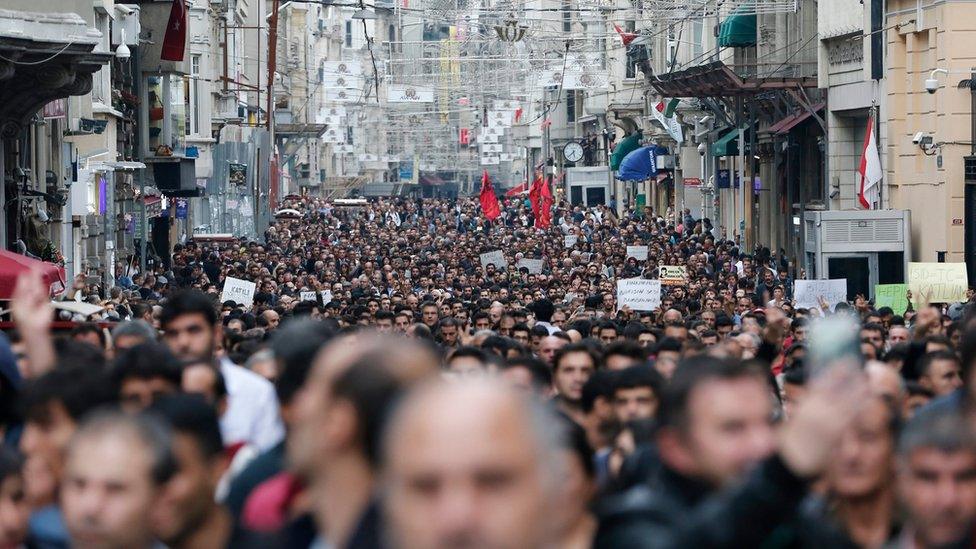
Protesters gathered in Turkey's largest city, Istanbul, to condemn the attacks

Analysis: Mark Lowen, BBC News, Istanbul
After the ceasefire between the PKK and the Turkish state broke down in July, Turkey has spiralled into tit-for-tat attacks between the two sides, and tension between Kurds and Turkish nationalists has soared.
Amidst the frenzy of a repeat election in November, it was expected that something dangerous was imminent.
The pro-Kurdish HDP party has blamed the state. That is undoubtedly a reference to the so-called "deep state" often talked about here: a shady mix of nationalist forces either colluding with or supporting the government in power.
The West's vital ally in the Middle East is now facing a perfect storm: deep political polarisation, the bubble of economic success on the brink of bursting, a resumption of violence with the PKK, the threat from Islamic State, and two million Syrian refugees and counting.
The tragedy in Ankara is a sign of the dark times Turkey is now facing.

An HDP rally in the city of Diyarbakir was bombed in June, ahead of general elections in which the party entered parliament for the first time.
In July, a suicide bombing by suspected Islamic State militants on a gathering of socialist youth activists in the town of Suruc on the Syrian border killed at least 30 people.
A ceasefire between the Kurdish militant group the PKK and Turkey's government later broke down, with the PKK accusing the security forces of collaborating with IS.
This led to an increase in attacks from both sides over the summer.
On Saturday the PKK called on its fighters to halt its guerrilla activities in Turkey unless attacked first. A statement from an umbrella group that includes the PKK said its forces would "make no attempts to hinder or harm the exercise of a fair and equal election".
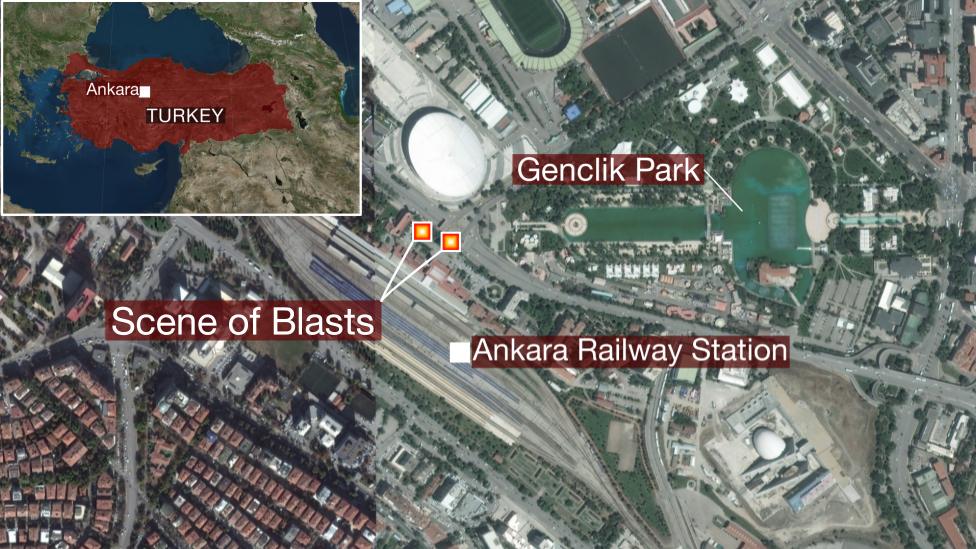
- Published10 October 2015
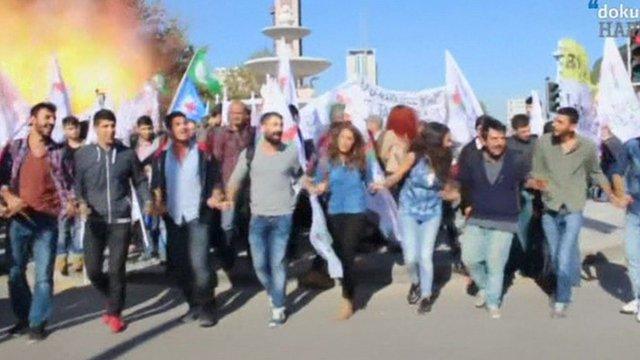
- Published10 October 2015
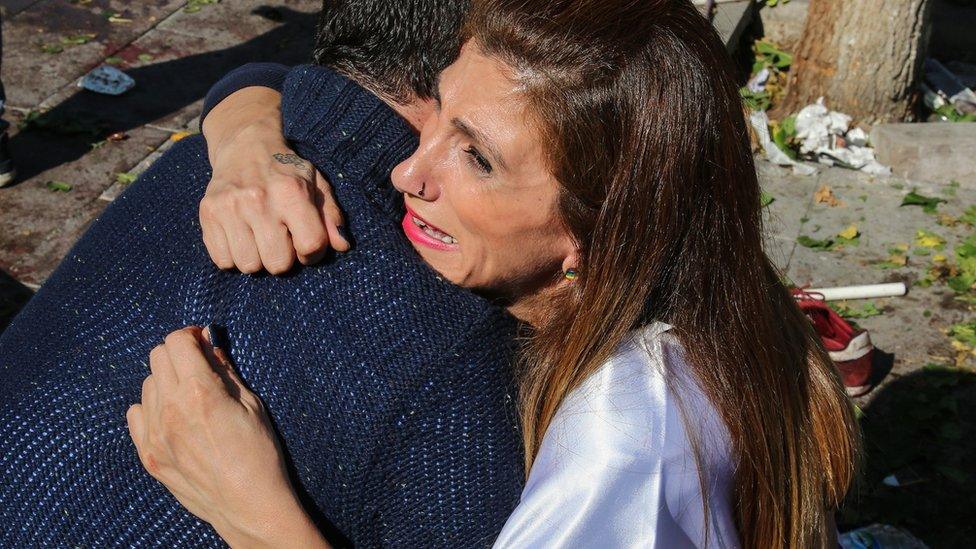
- Published9 September 2015
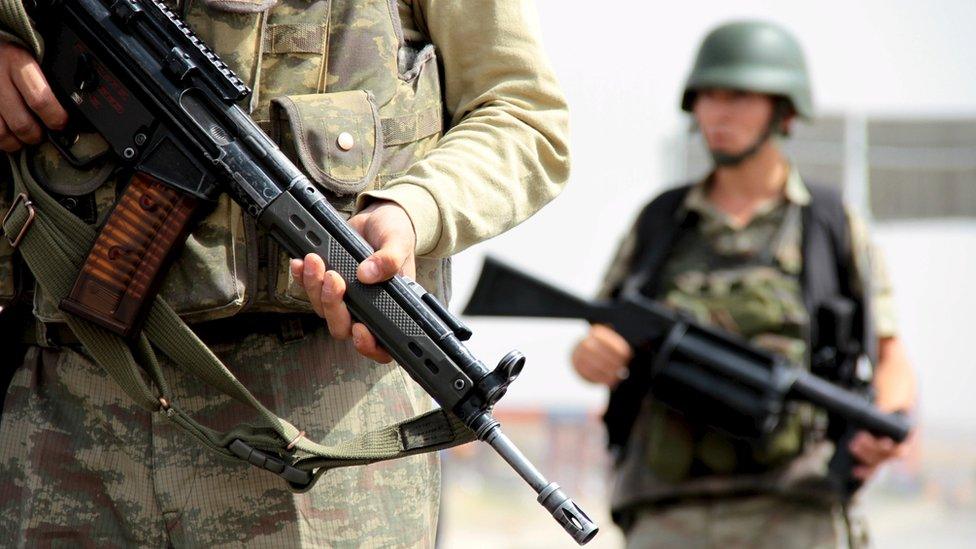
- Published8 June 2015
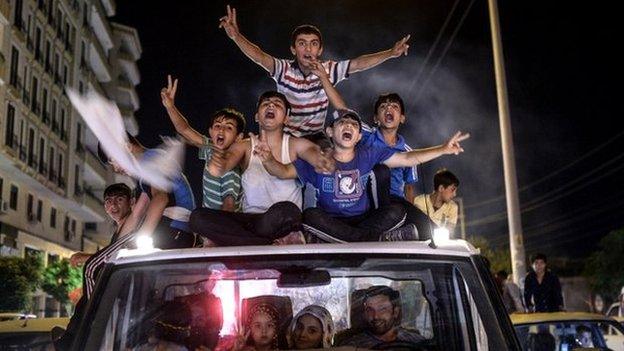
- Published23 August 2016
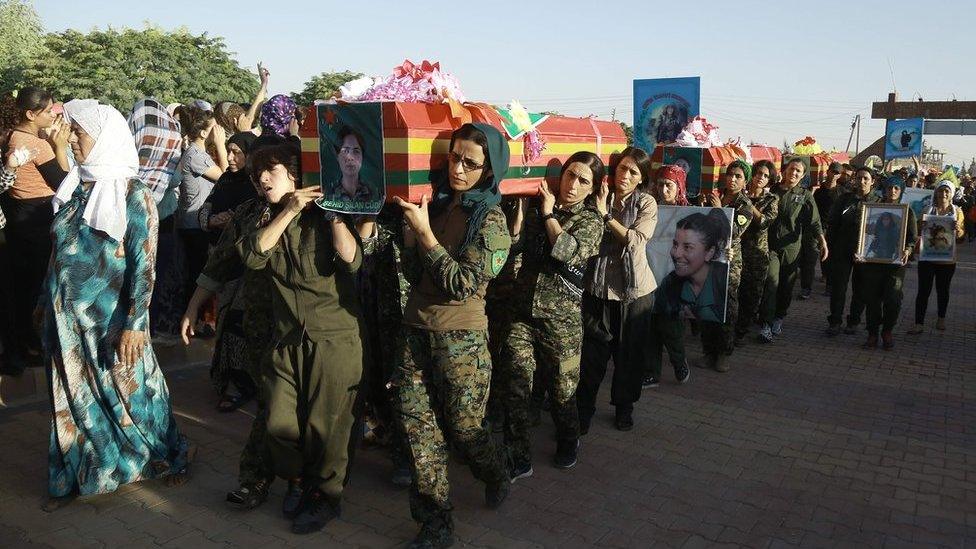
- Published18 September 2015
